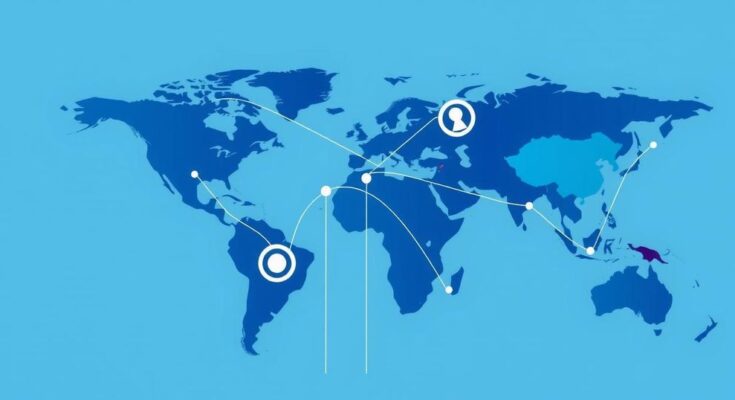Sudanese Foreign Minister Ali Youssef stated in a BBC Arabic interview that fighting in Sudan will continue during Ramadan, referring to it as a “month of war.” He clarified an existing agreement with Russia for a naval “service area” rather than a base. Youssef emphasized Sudan’s right to procure weapons from nations that do not impose sanctions, including Iran and Ukraine, while denying colonial aspirations. He reiterated that nobody, including Western powers, can prevent Sudan from acquiring necessary arms.
In a recent interview on BBC Arabic TV, Sudanese Foreign Minister Ali Youssef asserted that the hostilities in Sudan would persist throughout the month of Ramadan, referencing this period as a “month of war” in Islamic tradition. He addressed inquiries about Sudan’s military agreements with Russia, specifying that a prior arrangement for a naval facility on the Red Sea under President Bashir was not intended as a naval base but as a “service area” for military vessels.
Youssef highlighted the fact that Sudan faces Western and American sanctions, hindering their ability to procure weapons from these nations. He expressed skepticism regarding expectations for the Sudanese army to capitulate, emphasizing that Sudan must acquire arms from countries that do not impose sanctions. Responding to specific mentions of Iran and Ukraine, he asserted that Sudan reserves the right to procure weapons from any willing seller.
During the interview, the foreign minister clarified misconceptions about Sudan’s military relationships, reinforcing that their agreement with Russia, currently pending parliamentary ratification, is not characterized by naval sovereignty but rather by service provisions. He reiterated that while Sudan maintains amicable ties with Russia, it also engages constructively with European nations, seeking to avoid any form of colonialism.
Youssef dismissed concerns regarding the implications of hosting Russian military presence, arguing that it is consistent with practices observed in places like Syria and Djibouti. He pointedly remarked that if such a presence constitutes disguised colonialism, then many countries would fall under scrutiny as well. The foreign minister remained resolute, stating, “We buy weapons from anyone willing to sell us. Nobody can prevent us from doing so.”
In conclusion, Minister Youssef’s remarks affirm Sudan’s sovereignty in military acquisitions despite sanctions. He maintains a firm position on international relations, promoting Sudan’s interests without succumbing to external pressures or control.
In essence, Sudan’s Foreign Minister Ali Youssef champions the nation’s right to acquire military resources from various sources, emphasizing the absence of constraints from Western sanctions. His statements regarding the naval agreement with Russia clarify Sudan’s strategic positioning and its intent to foster foreign relationships without compromising national sovereignty. The focus remains on securing arms from any nation willing to engage with Sudan, thereby reaffirming their military autonomy.
Original Source: www.memri.org




